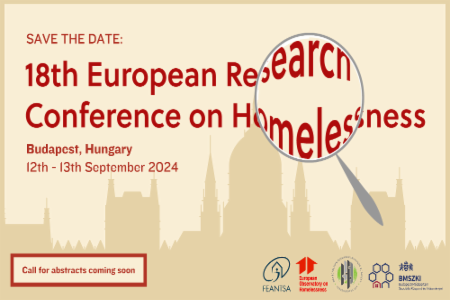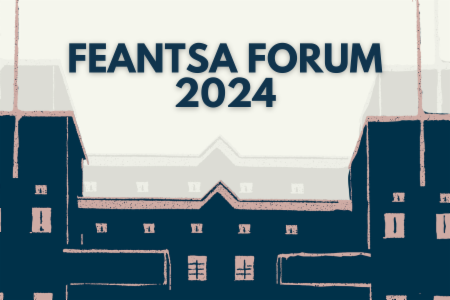FEANTSA STATEMENT
Social Fund Agreement: Opportunities for investing in addressing homelessness
Fight against child poverty includes investing in decent housing
Read and dowload PDF
FEANTSA welcomes the political agreement reached between European Commission, Parliament and Council on the future European Social Fund Plus (ESF+) on 28 January.
Homelessness has risen by 70% over the past 10 years in the EU, it is therefore essential that ESF+ resources are mobilised to prevent and address poverty, homelessness and housing exclusion in the financial period 2021-2027. There were clearly compromises made, the regulation nonetheless has a stronger social dimension that in previous financial frameworks.
According to the agreement every country will have to invest at least 25% of its ESF+ resources in social inclusion. With the ambition to trigger strategic policy reforms to end housing exclusion, funding under this strand can include support services for homeless people, support with reintegration into the labour market, but can even be used to pay for rent of a flat if it is part of an integrated inclusion programme. Additionally, the national strategic policy frameworks for social inclusion and poverty reduction that countries need to provide before being able to spend either ESF+ or the European Regional Development Fund on active inclusion, will have to feature an overview of homelessness along with quality services for vulnerable people.
Fighting material deprivation (former FEAD programme) is now part of the fund, with at least 3% to be spent per Member State. Material aid to the most deprived, includes, but is not limited to, food aid. It could for instance, be used to support homeless people moving into housing by paying for equipment that makes a house a home – kitchen utensils, cleaning material, some basic furniture, curtains, etc. Member states can also use the 3% for social inclusion - targeted social support - measures for the most deprived.
For the first time in the EU’s budget there is earmarking for the fight against child poverty. Children’s comparatively high poverty risk has led to the preparation of both a policy framework (Child Guarantee) and the targeting of ESF+. Member States where the rate of children at risk of poverty or social exclusion is above the 2017-2019 EU average (23.4%) will have to spend at least of 5% of their ESF+ resources on actions that contribute to children’s equal access to free healthcare,free education, free childcare, decent housing and adequate nutrition. The rest of the countries should do so to an appropriate extent.
At a time when more and more families are facing financial difficulties and risks of eviction due to the downturn caused by the pandemic, it is a strategic decision to invest EU funding in children’s access to essential services such as housing. However, in every member state there are children in vulnerable situations and with urgent needs.
Whilst the access to decent housing is a welcome component of children’s wellbeing, it has to be noted that homelessness statistics are not directly correlated with national poverty rates. In countries such as Belgium, France or Slovakia, children’s and family homelessness is an issue, though they will not be obliged to invest in adequate housing for children under this new earmarking.
With the upcoming Child Guarantee Council Recommendation it will be important that every member state takes action to prevent and reduce child poverty. This requires political ownership at national level, integrated strategies, and a thorough mapping of children in vulnerable situations, including children experiencing homelessness. The design of policy responses is a national policy remit, but FEANTSA is keen that the increased EU dedication to address homelessness through the upcoming European Platform on Homelessness and the Child Guarantee will mutually reinforce each other to bring about progress in all Member States.
Similarly, youth remains a priority under the fund. All Member States will need to spend “an appropriate amount” on the implementation of the Youth Guarantee; and those where the number young people neither in employment, education or training (NEET) is above the 2017-19 EU average, 12,5% of the resources have to be directed towards measures contributing to youth employment.
The request to allocate resources for the capacity building of social partners and civil society, including trainings has also made it into the proposal. When a country gets a country specific recommendation to this end, there is even a slim earmarking of 0.25% to be spent on it. It is a step forward to acknowledging the needs of civil society in becoming fully equipped partners in EU cohesion policy.
With the agreement reached on this file, FEANTSA is looking forward to Member States ESF+ programmes to feature investments in the fight against homelessness and housing exclusion.






